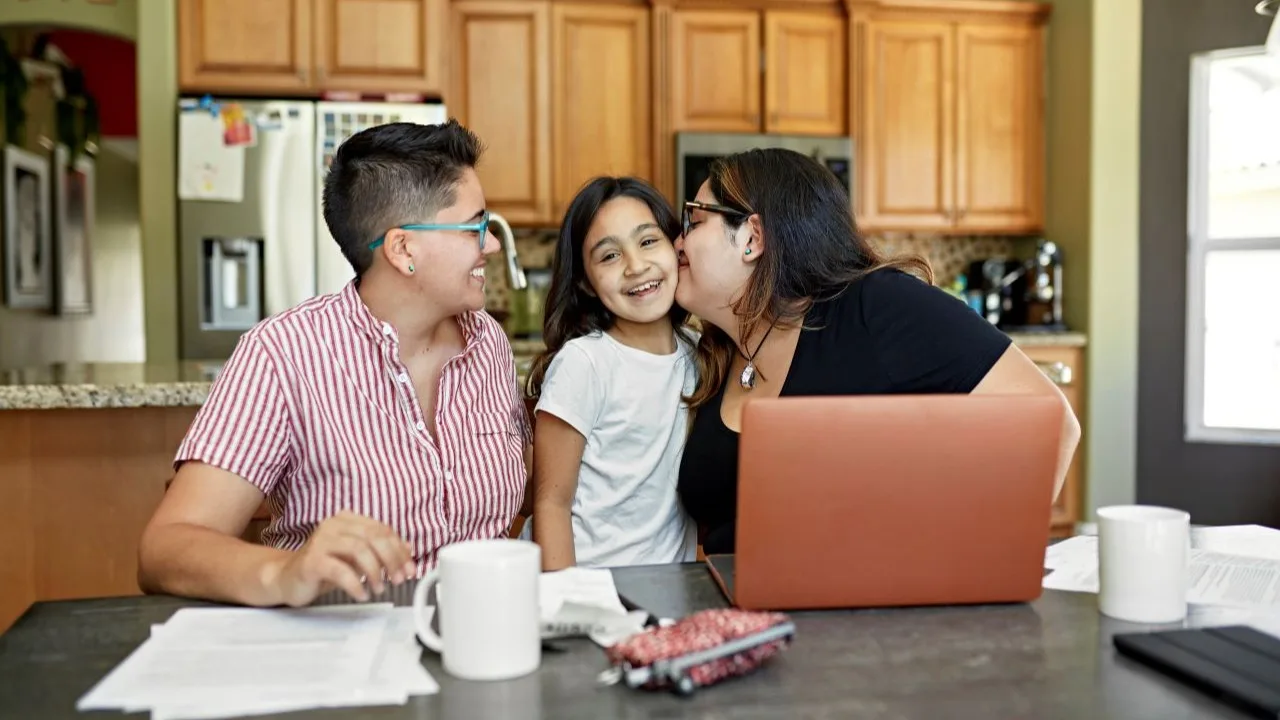At Achieve, we're committed to providing you with the most accurate, relevant and helpful financial information. While some of our content may include references to products or services we offer, our editorial integrity ensures that our experts’ opinions aren’t influenced by compensation.
Money Tips & Education
10 great budgeting tips for more fun and less guilt
Dec 05, 2023
Written by
Reviewed by
Key takeaways:
Budgeting helps you spend less on what’s less important, so you can spend more where it matters.
Big changes can yield big results. But even some small changes can, too.
Reward yourself for good behavior—don't cut the fun out of your life.
Budgeting is the first rung on the ladder to financial freedom. Your budget is for making your dollars work for you. It’s not about pinching every penny until it screams. Once you know what money you have and where it goes, you get to make choices that support the goals you want to accomplish.
Let’s flip the script on budgeting. Your budget won’t suck all the fun out of life. It’s your personal finance strategist, and you’re the boss.
Let’s tackle budgeting.
Getting started with a budget that reflects your priorities
The most important thing about budgeting is that you find a plan that works for you. These tips can make it easier and more fun to plan your spending. But first, you’ll need to complete a few quick tasks:
Figure out your take-home pay.
Add up your necessary expenses, like food, shelter, and transportation to work. Subtract them from your take-home pay. The result is your discretionary (fun) money.
Make a list of ways you spend your discretionary money, and rank them from “yay” to “meh.” In months when money is tight, protect your budget by skipping the lower-ranked items. (Note that upgrades to necessities, like fancy food, are discretionary, and should come out of your fun money.)
Choose a budgeting method. Popular ones include the envelope, the 50/30/20, the weekly allowance plan, and zero-based budgeting. Let technology do the work. The Achieve MoLO app is free and can help you make budgeting a breeze.
Hit the ground running by selling off things you don’t use or need. Put at least half of the proceeds into a savings account or use it to pay down debt.
Finally, note why you’re creating this plan. Is your goal to pay down debt? Save money? Purchase a house? Retire early? Start a business? Expand your family? Bike around Europe? Buy a new car? Whatever your dream is, congratulations! You’re on your way.
Top 10 budgeting tips for beginners
Budgeting tips can help you stay the course when you just want to break out that credit card and go nuts because you’re stressed. Or celebrating. Or bored.
1. Put your big goal front and center
How will a spending plan improve your life? Visualize the result you want, and make a picture or vision board to match. Talk about it with your humans. Get excited! Imagine how proud you’ll feel when you pull it off. Return to your vision every morning, and let it energize you.
2. Pay attention to little goals, too
Every big goal can be broken down into smaller ones. If you plan to save $10,000 in a year, break that into 12 months or 52 weeks. Decide what must happen every week for you to succeed. If you get paid every two weeks, you’d know that you need to put $385 into savings every payday.
3. Celebrate your wins
Plan (and budget for) rewards when you hit big and small goals. If your objective is a trip to Paris in two years, for instance, take yourself for a bistro meal when you honor your monthly budget. Live it up (a little) while you save up. It’s difficult to make lasting changes if discipline feels like punishment.
4. Don’t let friendships bankrupt you
It’s hard to stick to a money-saving plan if you’re trying to keep up with a big-spending circle of friends. But there's a lot of power in the word “no,” and no shame in declining things that are beyond your budget. You can also propose affordable ways to socialize, like game nights, outdoor fun, potluck dinners, free concerts, open mic nights, food truck Fridays, and so on. True friends won’t drop you because you don’t keep up with the Kardashians.
5. Get a budget buddy
Chances are you’re not the only saver in your group. Cheer on like-minded friends, and help each other succeed. When you’re tempted to go rogue, check in with an understanding pal and let them talk you off the ledge.
6. Go cold turkey
Sometimes the easiest way to make big changes is to, well, make big changes. If money sneaks out of your wallet despite your best intentions, stop spending on anything beyond the necessities for a specific time. (Studies show that it takes about two months to make a new habit automatic. But you can get a good start in about three weeks.)
Be honest with yourself. Food is a need—lobster isn't. Play around with ways you can avoid discretionary spending. It’s especially important to plan your free time, or boredom could undermine your resolve. At the end of your spending fast, decide which lifestyle changes you can keep, and which didn't work for you.
7. Combine goals
Do you have a costly habit that’s also bad for you? Too much alcohol, tobacco, or junk food? Reap a double reward by cutting down on your particular poison.
8. Watch what you watch
Reality TV has shaped our world in many ways by providing a distorted view of life. Studies show that watching people buy frivolous things, travel extravagantly, or shop for new homes can ignite FOMO in the most disciplined of viewers. As does social media if it seems like everyone you know is splashing out on things you’d also like to buy.
You don’t have to give up watching guilty pleasure shows if you don’t allow yourself to be influenced, but be mindful. If watching others enjoy the big life makes you feel bad about your own, dial it back. Take a break and do something you enjoy with people you love.
9. Procrastinate purchases
Americans spend an average of $450 a month on impulse buys. It’s amazing how many things we think we need (but don’t). Here are a few ways to avoid tricky spending traps:
Disconnect your credit and debit cards from Amazon and other online shops you frequent. Entering your card number each time can give you enough of a pause to reconsider the transaction.
Unsubscribe from promotional emails and send them to spam.
Leave your credit cards at home, and delete mobile payment apps. Studies show that paying in cash makes you pay attention.
Instead of purchasing an item the minute you think you need it, add it to a list of things you plan to buy later. You’ll be surprised how many things drop off the list if you wait. When you have room in your budget, prioritize the things on the list and buy on sale.
Imagine how much faster you’ll hit your financial goals if you can cut your impulse spending down to size.
10. Trim expenses (then reward yourself!)
Want more money for fun without overspending? Look for opportunities to save, then reward yourself for finding them. For instance, shop your insurance policies, cancel unused subscriptions, buy a car that’s less expensive, get a home energy audit, start a carpool, or quit your gym and walk or run (your dog will thank you). Calculate how much you save, and put half into your fun money fund. That’s extra you can spend on whatever lights you up.
At the grocery store, try swapping out items with the cheapest option available. If you usually buy steak, make a stew in your crock pot instead. Exchange name brands for generic. Buy in bulk. This exercise doesn’t have to be a lifetime commitment, but it could illuminate where you can painlessly cut costs, and where you can’t.
Enlist the help of your entire family. Kids will really get into it if they get to keep some of what they save. If they’re willing to pack their own sandwiches or take the bus instead of making you drive them to school, reward them. You’re teaching valuable lessons.
When you do spend, spend wisely
Necessities do require some spending. But there’s a right way to spend.
Be intentional. Always shop with a list.
Plan for large expenses. Start comparison shopping at least a month before you buy.
Pay attention to financing charges. If you can cut interest costs in half by refinancing or consolidating debt, do it—unless the fees would cancel out your gains.
Brainstorm cheaper choices. They might not all be great, but some will be.
Look for deals on things you buy every day. Use apps like Gas Buddy, and virtual coupons from your grocery store.
What’s next?
Download a budgeting app. If you’re new to budgeting, the easiest way to get started is to use an app that relies on secure technology to sync up with your accounts, show you all of your transactions, and help you make sure all of the transactions are categorized correctly. The Achieve MoLO app is free. It’s designed to help you find money left over at the end of each month, which you can use to reach your goals.
Circle back. Budgeting isn't a set-and-forget exercise. Thank goodness. Your perspective and priorities will change over time. Think of it as a recipe that you tweak a little each time you make it, until the flavors are just right.
Supervise yourself. Accountability can help you be more successful. Look back and compare what you planned to spend to what you actually spent. If there’s a mismatch, maybe your plan wasn’t realistic. Or maybe more reminders and guardrails will help you stay on track
Be kind to yourself. No one’s perfect. You’ll make mistakes. And unexpected events like a car repair or medical emergency can temporarily blow you off course. Don’t punish yourself. Make adjustments if necessary and move on. You’ll get there.
Author Information
Written by
Gina Freeman has been covering personal finance topics for over 20 years. She loves helping consumers understand tough topics and make confident decisions. Her professional history includes mortgage lending, credit scoring, taxes, and bankruptcy. Gina has a BS in financial management from the University of Nevada.
Reviewed by
James is a financial editor for Achieve. He has been an editor for The Ascent (The Motley Fool) and was the arts editor at The Valley Advocate newspaper in Western Massachusetts for many years. He holds an MFA from the University of Massachusetts Amherst and an MA from Hollins University. His book Krakatoa Picnic came out in 2017.
Frequently asked questions
What is the envelope method?
The envelope method can help curb impulse spending. You put cash for your budget items into envelopes marked for different spending categories (rent, groceries, fuel, etc.). When an envelope is empty, you stop spending in that category.
What if I don’t make enough money to do a 50-30-20 budget?
The 50/30/20 rules call for spending 50% of your take-home pay on basic needs, 30% on wants, and 20% on savings (or debt reduction). Some people have difficulty covering their needs with 50%, especially those who live in expensive areas, have student loans, or earn less. You can adjust the guidelines to make sense. For instance, try a 60-20-20 or even a 70-20-10 split.
How much should one person spend on groceries?
According to the USDA, an individual on a thrifty budget would spend around $200 to $300 per month on food. That’s only $7-$10 per day. Most people would need to put in some effort to keep costs down to this level. The actual cost also depends on where you live, how much cooking you do (as opposed to buying prepared foods, which can cost a lot more), and whether you have special dietary needs.
Related Articles
Some credit checks affect your score, but others don’t, even from the same lender. We’ll explain when and why credit checks can affect your credit.
Myth-busting: you don’t need to carry a credit card balance to have good credit! Learn how credit utilization affects credit scores.
Ready to take control of your money? Learn what a budget can do for you and how to make one.



